How To Protect A Birds Nest From Rain
How To Protect A Birds Nest From Rain: Helpful Tips
It’s the rainy season, and you are worried about the birds you feed in your garden. How to protect a birds nest from rain, and does it need protection? Let’s see.
You may be worried about the bird nests on your property. You might wonder what will happen to these fragile structures and the hatchlings they hold during rains.
If these thoughts are keeping you down, know that there isn’t much that you can or should do.
In this article, let’s understand whether or not you should protect a bird’s nest from rain and under what circumstances you might need to.
Should You Protect Bird Nests From Rain?
Each bird species has its way of coping with the rain. Some birds enjoy the rain and bathe, while others seek shelter. But what about nesting birds?
Well, bird nests in the wild have survived bad weather conditions, including rain, for centuries. 77% of all perching birds build open nests, and you might think those are more susceptible to rain.
However, evolution and nest-building habits over centuries mean that birds build these nests to withstand rainfall and have been doing so for a long time.
Therefore, you don’t need to offer any protection from rain, except perhaps if there is a bad storm coming and you feel the nest won’t be able to survive it.
Sometimes, you may find eggs or nestlings in these nests. You might feel that you should place the nest in a more secure location or set up an enclosure or a covering over it to protect the chicks.
However, it is best to stay away, no matter the rain. If you approach the nest or try to touch it, the parent birds may think that you are being aggressive and abandon the nest.
You should only intervene if you find injured or wounded baby birds and no adults nearby. In that case, you should immediately try to bring in the hatchlings and take care of them.

How Do Birds Protect Themselves During Storms and Heavy Rain?
Birds have various techniques to protect themselves during storms or when it is raining heavily.
For example, some birds (such as hummingbirds) have mastered a rain posture that allows them to conserve body heat.
In this posture, birds will perch upright and withdraw their heads while pointing their beaks towards the rain.
Sensing the Storm
Birds have a Paratympanic organ in their middle ear. This organ has sensory hair cells which respond to natural stimuli and can sense changes in air pressure.
Before a storm, the air pressure falls, and birds feel discomfort in their ears, so they get ready and fly to a safer location.
Eat Up
Birds will eat up to protect themselves from a storm that might last for a long time. When it rains heavily, they will often not get food until the rain stops. This is why they feed themselves so as not to go hungry during the storm.
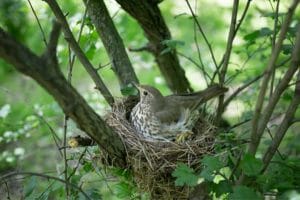
Get Out of the Way
Birds that are not nesting will take shelter under branches, in bushes, and in foliage. If birds are nesting, they will often huddle up in their nests to share body heat.
However, it depends on the birds. Some seabirds, for example, seagulls, prefer to stay their ground, while others, like albatrosses, fly away before a storm.
How Do They Shield Their Chicks From Rain?
Adult birds have feathers covered in a waxy, oily layer. Birds secrete this oil from the Uropygial glands and use the secretion to coat their feathers, which gives them water resistance.
To shield the baby birds, the mother bird will tuck them under its feathers, hiding them from the rain and keeping them warm.
Should You Rescue Baby Birds After a Storm?
Sometimes, baby birds fall from their nests during a storm. If the bird is a healthy fledgling, you should let it be, as it is alright for them to wander off. But, if it is a nestling, and you can see the nest, you should rescue them.
When there is just light rain, fledglings can survive on their own. You should only rescue baby birds if they are nestlings or have become injured during the fall.
Nestlings that cannot fly properly or baby birds that are injured often become targets for predators.
If you rescue a baby bird, try to return them to their nests. The parent birds will care for their babies, so there is no need to displace them.
If you cannot find the nest, you can create an artificial one using a box, some straw, leaves, and twigs.
Place this on a tree near where you found the baby bird. Check if the parents come back. It is best to alert a wildlife rehabilitation organization to rescue the bird if they don’t.
How Can You Help Them During Rain?
While it is best not to interfere, you can extend some help to the birds during rain.
When the weather turns bad, you can set up nest boxes on your balcony or backyard. This is a good option if you regularly feed birds and they know you.
Give the Parent Birds Little Houses
You can build nest boxes for adult birds. Get some small birdhouses or set up boxes with dry materials like leaves and twigs.
The box should be sturdy enough to protect them during the rain. Birds will add more to make the box comfortable for themselves.
Provide Food for the Nesting Birds
You can help by putting out bird food. Before it starts raining, birds tend to eat up as they can’t find food during the rain.
Nesting birds often don’t want to leave their nests, especially if they’ve laid eggs. Therefore, providing them easy access to food will be a big help.
Cover the Nests for Extra Protection
When you set up a nesting box, try to cover it up with straw and leaves to make it safe. But don’t approach the nest once the birds are in them. You may scare them away.
Save the Ones That Fall From the Nests
If you have set up nesting boxes on your balcony or any other such space, check if any baby bird has escaped and fallen to the ground.
Most of the time, the parent birds will rescue them. But if you don’t find the parent birds nearby even after the rain is over, you should try to put them back in the nest.
Use Eco-Friendly Products For The Nest Boxes
Don’t use plastics or metal materials when making nest boxes. Use eco-friendly products like cardboard boxes and natural materials like wood, leaves, straw, and paper.
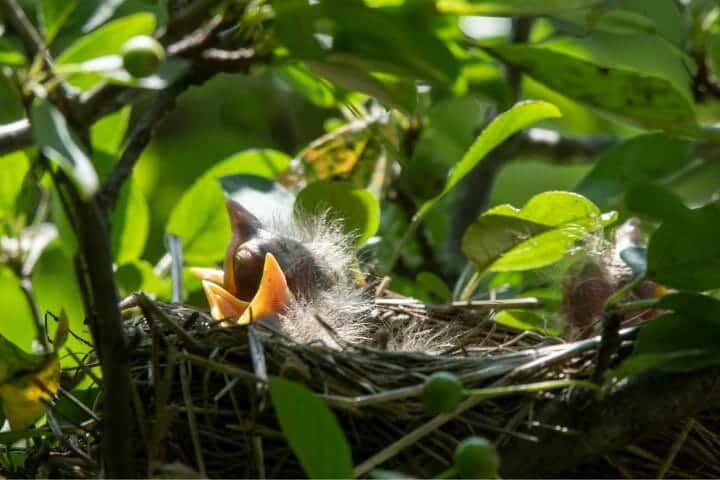
Frequently Asked Questions
Can bird eggs survive rain?
Where do nesting birds go when it rains?
Can birds drown in the rain?
How do baby birds in the nest get water?
Wrap Up
While rains can be harsh, your feathered friend is almost always equipped to get through the storm. So you need not worry.
But if you need to step in and help, follow the right procedures so that you do not spook them. We hope you enjoyed reading about how birds survive the rain – and what you should and should not do.

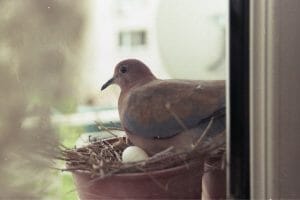
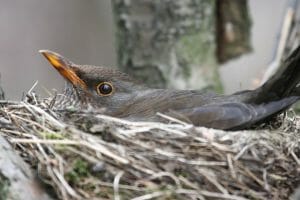

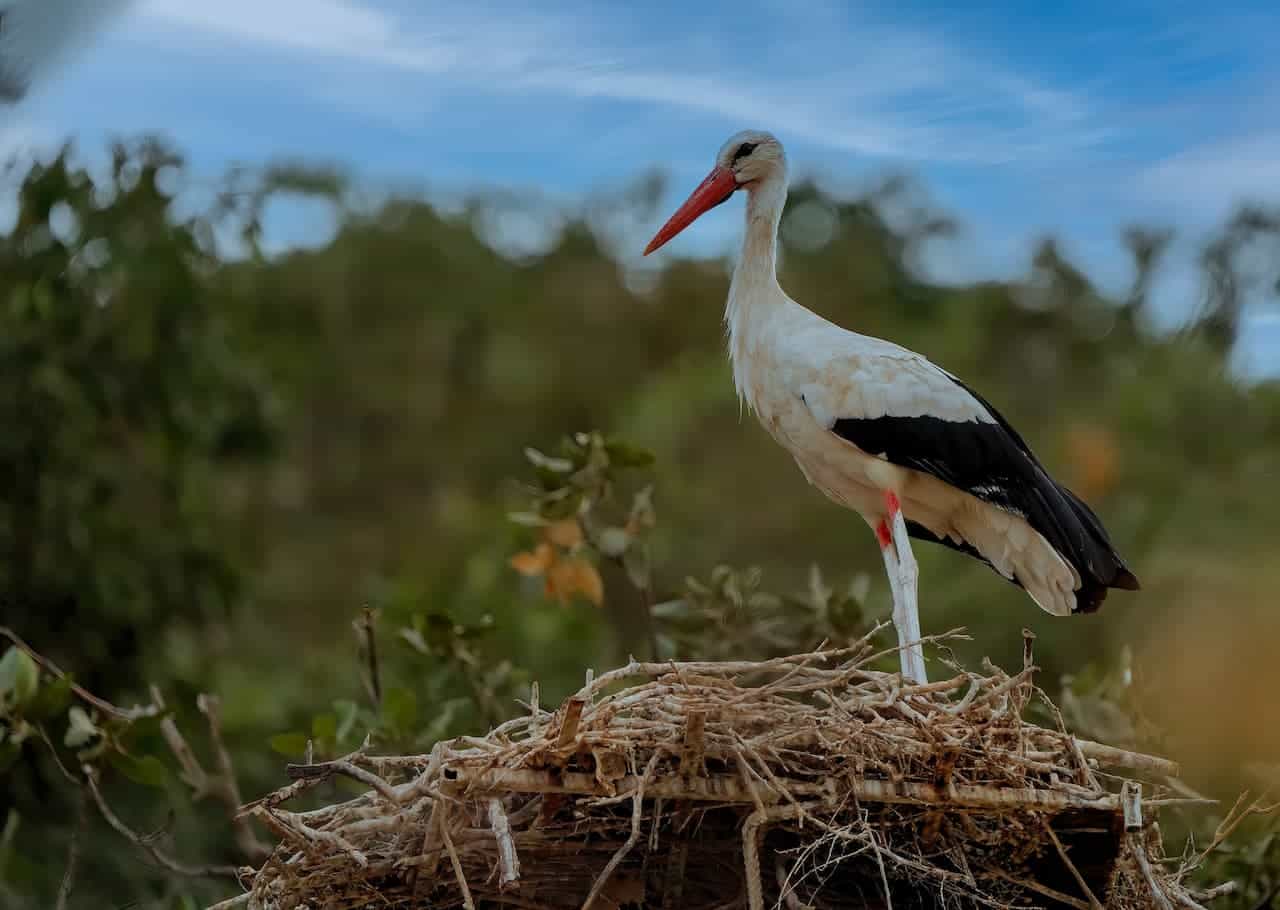
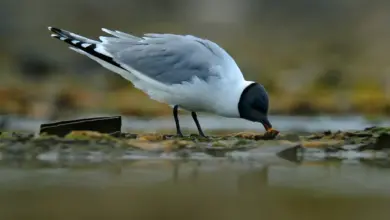
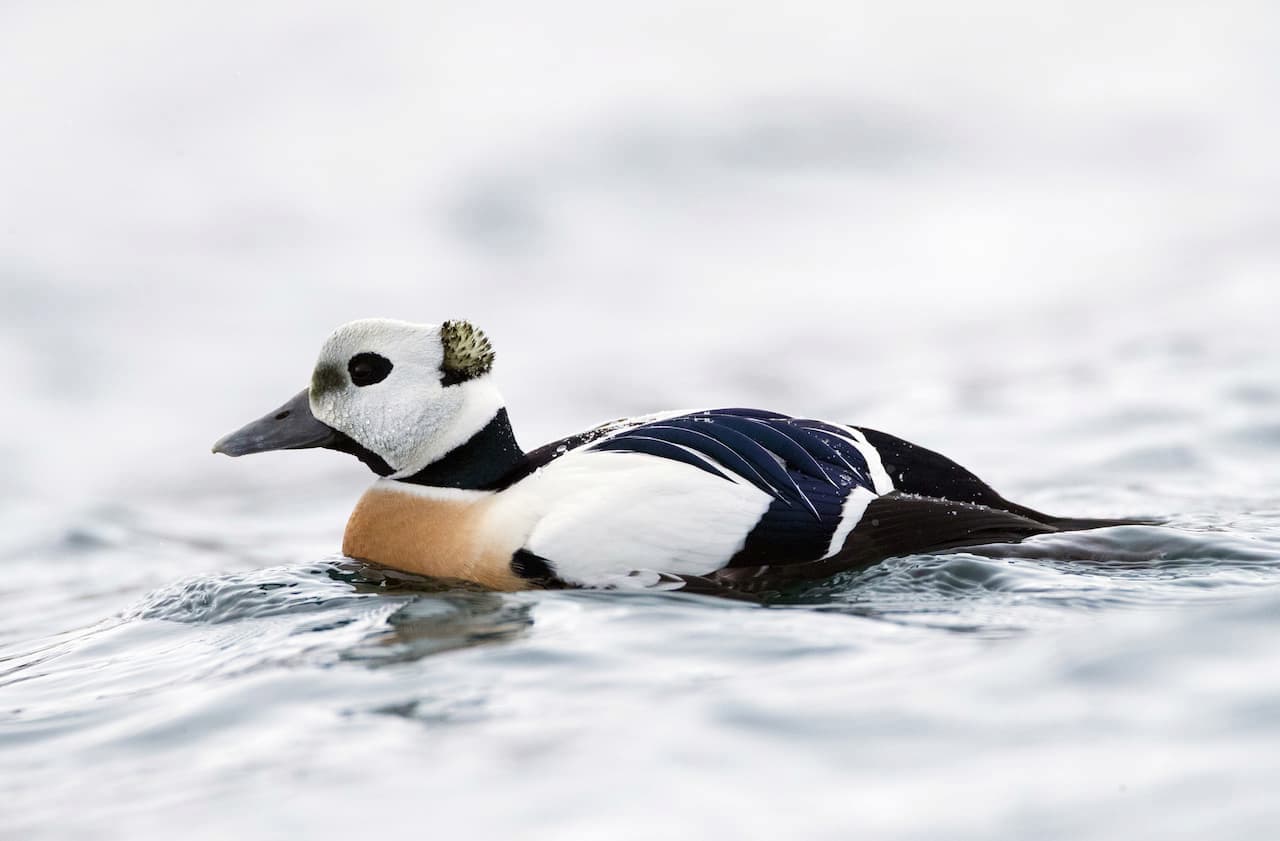
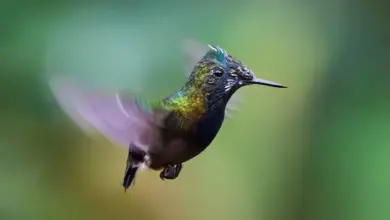
we have 2 mourning doves sitting on their hatchling through a heavy rain storm. they are just in a dying plum tree, so I hope the babies make it. It is interesting to see how the parents nestle together to cover their twins. I wish I could help. thank you for your article.
Redbirds is in my backyard on top of my hedges. There’s 2 eggs in them uncovered. What should I do? They’ve been there for a while. They had eggs before the mother. Bird used to study and sit on them, but now there’s no. Motherbird around the eggs are just there, what should I do?
I have a nest of azure-winged magpies with eight nestlings near my window. It started raining today and the parents do not seem to return to their babies. Should I help them?
Thank you so much for that important information. I have a family of crows nesting in a tall pine tree in my back yard. I am privilaged to see them each day tending their young. I hope to see the fledglings when they come out of the nest. I love crows, they are intelligent and beautiful. I was concerned as it is raining and you helped me not to worry,
Sincerely, Audrey
There’s a nest of cardinals outside my kitchen window. It’s been pouring rain and it’s cold out. I haven’t seen them in a few hours. I know the babies have recently hatched. Do you think they’ll be ok? I know I can’t help them.